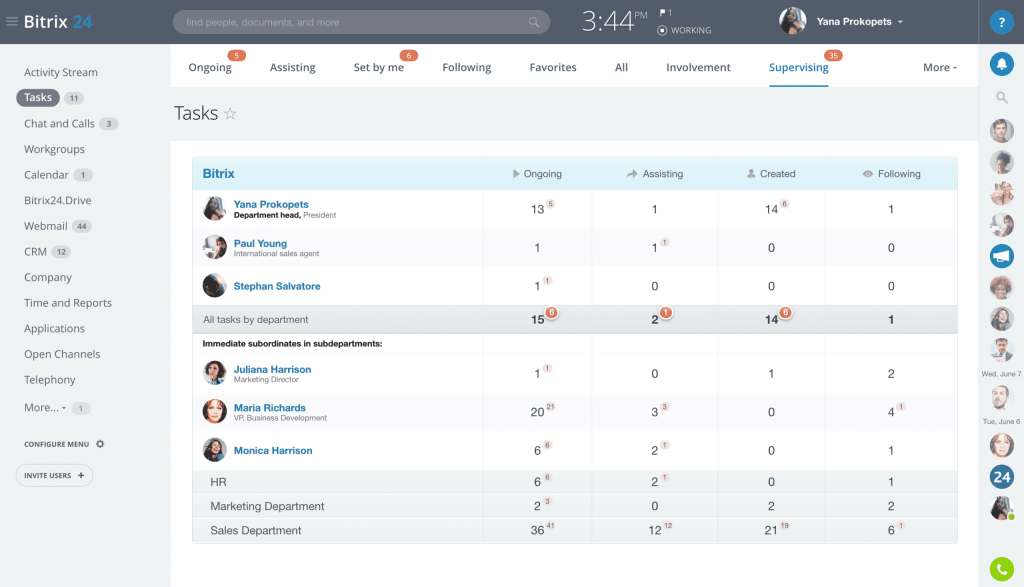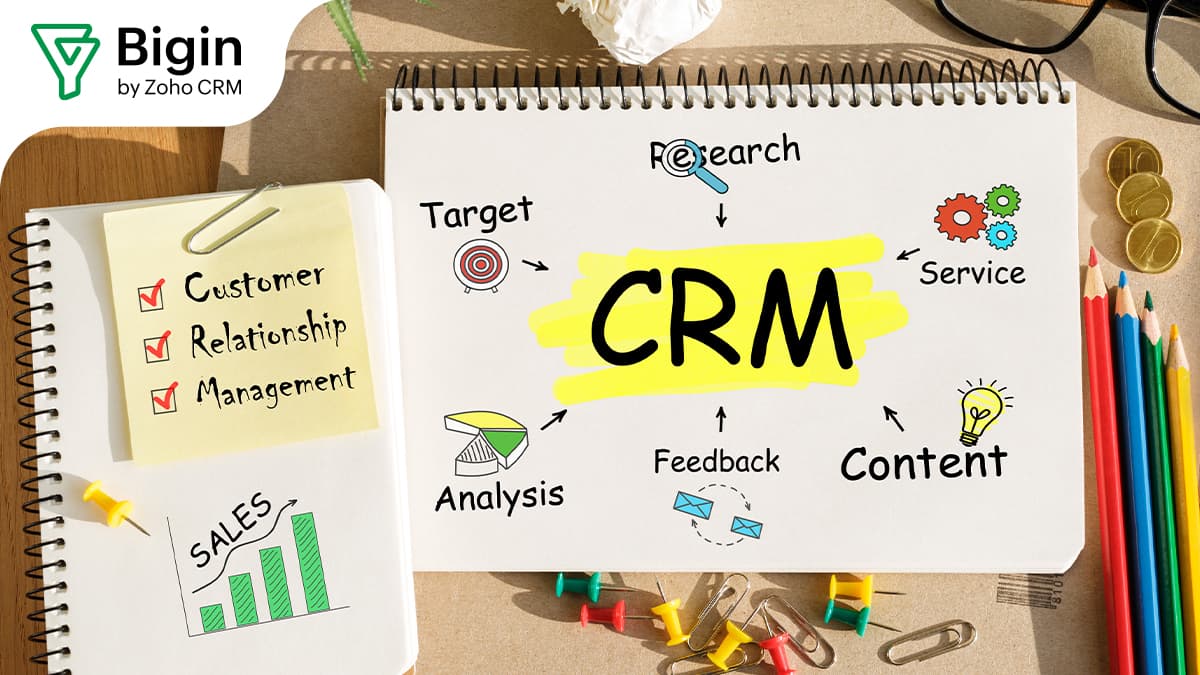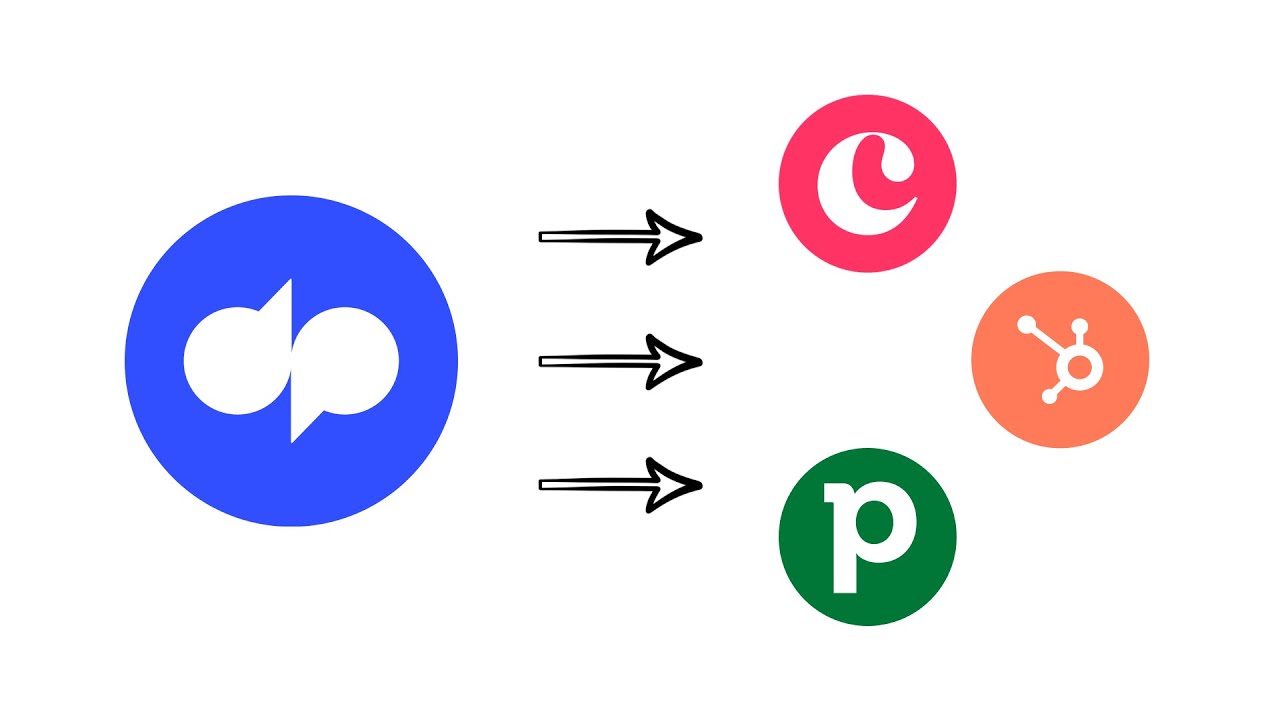Unlock Growth: How CRM Systems Supercharge Leads for Small Businesses

In the dynamic world of small business, every lead counts. Nurturing those leads, converting them into customers, and building lasting relationships is the lifeblood of growth. But managing this process manually can be a daunting task, leading to missed opportunities and frustrated teams. That’s where Customer Relationship Management (CRM) systems come in – transforming the way small businesses approach lead generation and management.
This comprehensive guide delves into the power of CRM for small business leads. We’ll explore what a CRM is, why it’s essential, and how to choose the right system to fuel your business’s success. Get ready to discover how a CRM can streamline your lead management, boost sales, and cultivate customer loyalty.
What is a CRM System? Decoding the Basics
At its core, a CRM system is a centralized platform designed to manage all interactions with current and potential customers. It’s much more than just a contact list; it’s a comprehensive tool that tracks every touchpoint, from initial inquiries to post-sale support. Think of it as the central nervous system of your customer relationships.
Here’s a breakdown of the key components:
- Contact Management: Store and organize detailed information about leads and customers, including contact details, communication history, and purchase history.
- Lead Management: Track leads through the sales pipeline, from initial interest to conversion. This includes lead scoring, segmentation, and automated follow-ups.
- Sales Automation: Automate repetitive tasks, such as sending emails, scheduling appointments, and creating sales reports, freeing up your team to focus on building relationships.
- Marketing Automation: Integrate with marketing tools to create targeted campaigns, track campaign performance, and nurture leads through personalized messaging.
- Customer Service: Provide a centralized platform for managing customer inquiries, resolving issues, and tracking support interactions.
- Reporting and Analytics: Gain valuable insights into sales performance, customer behavior, and marketing effectiveness through customizable reports and dashboards.
By centralizing all this information, a CRM system empowers businesses to understand their customers better, personalize their interactions, and drive growth.
Why CRM is a Game-Changer for Small Business Leads
For small businesses, the benefits of implementing a CRM system are numerous and far-reaching. Let’s explore the key advantages:
1. Streamlined Lead Management
Managing leads manually can be a chaotic process, with information scattered across spreadsheets, email inboxes, and sticky notes. A CRM system streamlines this process by:
- Centralizing lead data: All lead information is stored in one accessible location, eliminating data silos and ensuring everyone on your team has the same information.
- Automating lead capture: Integrate with your website forms, landing pages, and social media to automatically capture lead information and add it to your CRM.
- Tracking lead progress: Monitor leads as they move through the sales pipeline, from initial contact to qualified lead, proposal, and close.
- Prioritizing leads: Use lead scoring to identify the most promising leads and focus your sales efforts on those with the highest potential for conversion.
This streamlined approach saves time, reduces errors, and ensures no leads slip through the cracks.
2. Improved Sales Productivity
A CRM system can significantly boost sales productivity by:
- Automating repetitive tasks: Automate tasks such as sending follow-up emails, scheduling appointments, and creating sales reports, freeing up your sales team to focus on selling.
- Providing easy access to information: Sales reps can quickly access customer information, communication history, and sales opportunities, enabling them to close deals faster.
- Improving communication: Facilitate seamless communication between sales reps and customers through integrated email, phone, and chat functionalities.
- Providing sales insights: Analyze sales data to identify trends, track performance, and make data-driven decisions to optimize your sales process.
By automating tasks and providing valuable insights, a CRM system empowers your sales team to work smarter, not harder, and close more deals.
3. Enhanced Customer Relationships
Building strong customer relationships is essential for long-term success. A CRM system helps you achieve this by:
- Personalizing interactions: Access customer data to personalize your communications, offer tailored solutions, and provide exceptional customer service.
- Improving customer service: Provide a centralized platform for managing customer inquiries, resolving issues, and tracking support interactions, ensuring customer satisfaction.
- Tracking customer history: Monitor customer interactions, purchase history, and support tickets to gain a deeper understanding of their needs and preferences.
- Building customer loyalty: By providing exceptional service and building strong relationships, you can increase customer loyalty and encourage repeat business.
Happy customers are more likely to become loyal customers, and a CRM system is a powerful tool for fostering these vital relationships.
4. Data-Driven Decision Making
A CRM system provides valuable data and analytics that can inform your business decisions. You can:
- Track key performance indicators (KPIs): Monitor sales performance, marketing effectiveness, and customer service metrics.
- Identify trends and patterns: Analyze data to identify trends in customer behavior, sales performance, and market conditions.
- Optimize your sales process: Use data to identify bottlenecks in your sales process and make improvements to increase efficiency and conversion rates.
- Make informed decisions: Use data to guide your marketing efforts, product development, and customer service strategies.
Data is the lifeblood of smart business decisions, and a CRM system provides the insights you need to succeed.
5. Increased Revenue and ROI
Ultimately, the goal of any small business is to increase revenue and achieve a strong return on investment (ROI). A CRM system can help you achieve this by:
- Increasing sales: By streamlining lead management, improving sales productivity, and enhancing customer relationships, a CRM system can help you close more deals.
- Reducing costs: By automating tasks, improving efficiency, and optimizing your sales process, a CRM system can help you reduce operational costs.
- Improving customer retention: By providing exceptional customer service and building strong relationships, a CRM system can help you retain customers and generate repeat business.
- Boosting ROI: The combination of increased sales, reduced costs, and improved customer retention results in a higher ROI for your business.
Investing in a CRM system is an investment in your future, and the potential rewards are substantial.
Choosing the Right CRM for Your Small Business
Selecting the right CRM system is crucial for maximizing its benefits. Here’s a step-by-step guide to help you choose the perfect solution:
1. Assess Your Needs and Goals
Before you start researching CRM systems, take the time to assess your business’s specific needs and goals. Consider the following:
- What are your current pain points? What challenges are you facing in your lead management, sales process, and customer service?
- What are your sales goals? How many leads do you want to generate, and how many deals do you want to close?
- What are your marketing goals? What are your marketing objectives, and how do you plan to reach your target audience?
- What are your customer service goals? How do you want to improve customer satisfaction and loyalty?
- What features do you need? Make a list of the essential features you need, such as contact management, lead tracking, sales automation, and reporting.
- What is your budget? Determine how much you can afford to spend on a CRM system, including software costs, implementation costs, and ongoing maintenance.
By understanding your needs and goals, you can narrow down your options and choose a CRM system that aligns with your business strategy.
2. Research CRM Systems
Once you have a clear understanding of your needs, it’s time to research different CRM systems. Consider the following factors:
- Ease of use: Choose a CRM system that is easy to learn and use, so your team can quickly adopt it.
- Features: Make sure the CRM system offers the features you need, such as contact management, lead tracking, sales automation, and reporting.
- Scalability: Choose a CRM system that can grow with your business.
- Integrations: Ensure the CRM system integrates with your existing tools, such as email marketing platforms, accounting software, and social media platforms.
- Pricing: Compare pricing plans and choose a system that fits your budget.
- Reviews and testimonials: Read reviews and testimonials from other small businesses to get an idea of the system’s strengths and weaknesses.
Popular CRM systems for small businesses include:
- HubSpot CRM: A free, all-in-one CRM platform with a wide range of features, including contact management, lead tracking, sales automation, and marketing tools.
- Zoho CRM: A versatile CRM system with a focus on sales, marketing, and customer service, offering a range of features and integrations.
- Salesforce Sales Cloud: A powerful CRM system designed for larger businesses, offering a comprehensive suite of features and customization options.
- Pipedrive: A sales-focused CRM system that helps sales teams manage their pipelines and close deals.
- Freshsales: A user-friendly CRM system with a focus on sales and customer service, offering a range of features and integrations.
Consider the specific needs of your business when evaluating each option. Some CRM systems are better suited for certain industries or business models.
3. Evaluate and Compare
Once you’ve narrowed down your choices, it’s time to evaluate and compare the different CRM systems. Consider the following:
- Free trials and demos: Take advantage of free trials and demos to test out the systems and see how they work.
- Pricing plans: Compare pricing plans and choose a system that offers the features you need at a price you can afford.
- Customer support: Check the level of customer support offered by each vendor.
- Implementation and training: Consider the implementation process and the availability of training resources.
- User reviews: Read user reviews to get an unbiased perspective on the systems.
By carefully evaluating and comparing your options, you can choose the CRM system that best meets your needs.
4. Implement and Train Your Team
Once you’ve chosen a CRM system, it’s time to implement it and train your team. Follow these steps:
- Plan your implementation: Create a detailed implementation plan, including timelines, tasks, and responsibilities.
- Import your data: Import your existing contact data into the CRM system.
- Customize the system: Customize the system to fit your business processes.
- Train your team: Provide comprehensive training to your team on how to use the CRM system.
- Monitor and optimize: Monitor the system’s performance and make adjustments as needed.
Proper implementation and training are essential for ensuring the success of your CRM system.
5. Ongoing Optimization
Implementing a CRM system is not a one-time event; it’s an ongoing process. To maximize the benefits of your CRM, you need to continually optimize it. Here are some tips:
- Regularly review your data: Ensure your data is accurate, up-to-date, and complete.
- Analyze your performance: Track your key performance indicators (KPIs) and identify areas for improvement.
- Adjust your processes: Modify your sales process, marketing campaigns, and customer service strategies based on your data analysis.
- Provide ongoing training: Provide ongoing training to your team on how to use the CRM system effectively.
- Stay up-to-date: Stay informed about new features and updates to your CRM system.
By continually optimizing your CRM system, you can ensure it continues to meet your business needs and drive growth.
Best Practices for CRM Lead Management
To get the most out of your CRM system and supercharge your lead management, consider these best practices:
- Define your ideal customer profile (ICP): Clearly define your target audience to focus your lead generation efforts.
- Segment your leads: Segment your leads based on demographics, behavior, and other relevant criteria to personalize your messaging.
- Develop a lead scoring system: Assign scores to your leads based on their engagement and behavior to prioritize your sales efforts.
- Create a lead nurturing program: Nurture your leads with targeted content and automated follow-ups to move them through the sales pipeline.
- Integrate your CRM with other tools: Integrate your CRM with your email marketing platform, social media platforms, and other tools to streamline your workflow.
- Use automation to your advantage: Automate repetitive tasks, such as sending emails, scheduling appointments, and creating sales reports.
- Track your results: Monitor your key performance indicators (KPIs) to track your progress and make data-driven decisions.
- Provide excellent customer service: Provide exceptional customer service to build strong relationships and encourage repeat business.
- Regularly clean your data: Keep your data accurate, up-to-date, and complete to avoid errors and ensure data integrity.
- Stay adaptable: Be prepared to adapt your CRM strategy as your business grows and evolves.
By implementing these best practices, you can maximize the effectiveness of your CRM system and drive significant results.
Overcoming Challenges in CRM Implementation
While CRM systems offer tremendous benefits, implementing them can present some challenges. Being aware of these challenges and proactively addressing them can ensure a smoother transition and a more successful outcome.
- Data Migration: Transferring existing data from spreadsheets or other systems into a new CRM can be time-consuming and complex. Ensure you have a well-defined data migration plan, including data cleansing and validation, to minimize errors and ensure data accuracy.
- User Adoption: Resistance to change is a common hurdle. If your team doesn’t embrace the CRM system, its effectiveness will be severely limited. Provide thorough training, demonstrate the benefits of the system, and involve your team in the implementation process to foster buy-in.
- Customization Complexity: Over-customizing the CRM can lead to a complex and difficult-to-manage system. Start with a streamlined implementation and gradually add customizations as needed.
- Integration Issues: Integrating the CRM with other business tools can sometimes present challenges. Ensure compatibility and test integrations thoroughly before going live.
- Data Accuracy: Inaccurate or incomplete data can undermine the value of your CRM. Implement data validation rules and regularly clean your data to maintain data integrity.
- Lack of Clear Goals: Without clearly defined goals and KPIs, it’s difficult to measure the success of your CRM implementation. Define your goals and track your progress to ensure you’re achieving the desired results.
- Poor Training: Inadequate training can lead to users not utilizing the system effectively. Provide comprehensive training and ongoing support to ensure your team is proficient in using the CRM.
By anticipating and addressing these potential challenges, you can improve the chances of a successful CRM implementation.
The Future of CRM and Small Business Leads
The landscape of CRM is constantly evolving, with new technologies and trends emerging. Staying ahead of the curve can give your small business a competitive advantage.
- Artificial Intelligence (AI): AI is transforming CRM by automating tasks, providing predictive analytics, and personalizing customer interactions.
- Mobile CRM: Mobile CRM solutions allow sales teams to access customer data and manage leads on the go, increasing productivity.
- Social CRM: Integrating social media data into your CRM provides valuable insights into customer behavior and preferences.
- Personalized Customer Experiences: CRM systems are enabling businesses to deliver highly personalized experiences, leading to increased customer satisfaction and loyalty.
- Focus on Customer Journey: CRM is evolving to focus on the entire customer journey, from initial contact to post-sale support.
By embracing these trends, small businesses can leverage the power of CRM to drive growth and build lasting customer relationships.
Conclusion: Embrace CRM for a Thriving Small Business
In conclusion, a CRM system is a vital tool for any small business looking to thrive in today’s competitive market. By streamlining lead management, improving sales productivity, enhancing customer relationships, and providing data-driven insights, a CRM system can help you unlock growth, increase revenue, and achieve your business goals. Choose the right system, implement it effectively, and continually optimize it to reap the full benefits. Embrace the power of CRM, and watch your small business flourish.





